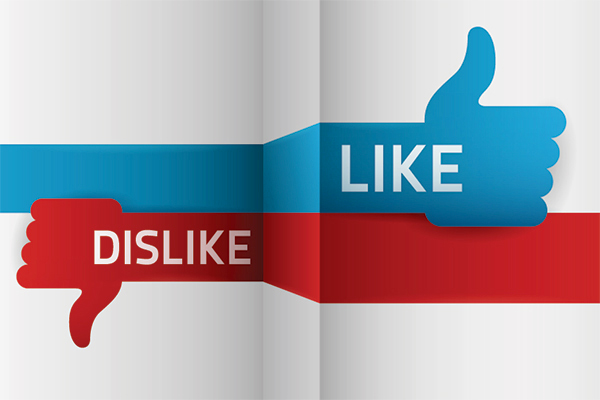If you are interested in Social Psychology (and who isn't?) you'll be well aware of some of the wonderful experiments on priming i.e. situations where participants are exposed to a certain kind of stimulus that influences their response to a future stimulus. The evidence on priming appears to suggest, for instance, that:
If you prime people with images relating to money they will be less cooperative.
If you prime people with words relating to old age, they will walk more slowly.
If you prime people with a warm mug they will be friendlier.
And so forth.
But does the evidence for priming really stack up?
I, like many others I know, had taken such ideas as established facts, as firm as any others in psychology, not least because they were propounded by academic heavyweights like John Bargh, Ap Dijksterhuis, and even Daniel Kahneman. However, in recent years it appears there have been difficulties in replicating the main findings of the priming experiments, and people are beginning to wonder whether priming really works at all.
in recent years it appears there have been difficulties in replicating the main findings of the priming experiments, and people are beginning to wonder whether priming really works at all
There is a wonderful article by Tom Bartlett in the Chronicle Review that details the range and extent of these doubts. One particularly punchy paragraph highlights the heated nature of the debate in the field:
In one of those e-mails, Pashler issued a challenge masquerading as a gentle query: "Would you be able to suggest one or two goal priming effects that you think are especially strong and robust, even if they are not particularly well-known?" In other words, put up or shut up. Point me to the stuff you're certain of and I'll try to replicate it. This was intended to counter the charge that he and others were cherry-picking the weakest work and then doing a victory dance after demolishing it. He didn't get the straightforward answer he wanted. "Some suggestions emerged but none were pointing to a concrete example," he says.
Now the stakes are pretty high here. I don't yet have any settled view, but it does matter that people working in applied psychology, broadly conceived, figure out where they are on this matter, if only because so many people build their practice around the assumption that priming works. For instance, there was a really powerful study done by Common Cause about priming people who are extrinsically motivated with intrinsic motivators and watching the effects:
much of the values debate in the sustainability field relates to the how you think priming works, but there is little discussion about whether it works.
"Although all the participants in the study had been selected because they held extrinsic values to be more important, we found marked differences between, on the one hand, the way in which participants who had been asked to reflect upon extrinsic values spoke about bigger-than-self problems, and, on the other, the way in which participants who had been asked to reflect upon intrinsic values spoke about these problems. Compared to those primed with extrinsic values, participants primed with intrinsic values spoke about social and environmental challenges in ways that conveyed a stronger sense of moral duty, and a greater obligation to act to help meet these challenges."
In this particular study, extrinsic values were primed with reference to wealth, preserving public image and popularity, while intrinsic values were primed with reference to affiliation, acceptance and being broad-minded. While the study's authors are duly cautious about over-extrapolating, they do indicate that their findings show that even those who express no dispositional inclination towards thinking or caring about 'bigger-than-self' problems, can begin to do so over time through the priming of intrinsic values.
Come to think of it, much of the values debate in the sustainability field relates to the how you think priming works, but there is little discussion about whether it works.
My impression is that priming fits with our best understanding of the unconscious, automatic, situational and social features of human nature, and probably does 'work', in the broadest sense, even when individual studies can't be replicated. But, then again, on reflection, perhaps I just think that because I have taken too many studies at face value. Perhaps (cue voodoo music) I have been primed to believe in primes...
Related articles
-
How can we give up bad habits for good?
Ian Burbidge
With the post-Christmas resolutions looming, when we try to address the worst of our seasonal over-indulgences, the question remains: how can we give up bad habits for good?
-
Why fake news doesn't swing elections
Tony Greenham
Fake news doesn’t swing elections, but neither does ‘truth’. We have always filtered new information to fit our existing prejudices. The real danger to our democracy is not an absence of truth, but an absence of trust.
-
Tell me a story? Or give me the figures?
Nathalie Spencer
What is the best way to influence stakeholders and generate change? Different approaches to generating change have different strengths, when should each be used to the best effect?




Join the discussion
Comments
Please login to post a comment or reply
Don't have an account? Click here to register.
I really appreciate the detailed response and of course accept the point that priming effects in general are not in doubt, and that any doubts about the field need to be targeted at a more specific aspect of priming, if not particular experiments.
That said, I think it is fair game, especially in a blog form, to call into question priming in general as a rhetorical device that serves to draw attention to the context of the more detailed questions that were explored in the Chronicle Review article. (Dare I say it, this is a prime example of how different mediums calls for different levels of detail).
In terms of your particular study, I need to look again more carefully, but I was very encouraged by the findings and thoughts on the implications, and hope you can replicate and develop them in your future work.
As psychologists, we (Greg Maio and Tim Kasser) feel it is
important to point out that it makes little sense to question "priming
effects" in a general, sweeping way.
There is little doubt among psychologists that the brain organizes its
knowledge via association networks, and that priming paradigms can tap into these networks. Hundreds, if not thousands, of studies in the memory literature have been replicated time and again showing that priming a concept like "doctor" makes people more likely to think of a concept like "nurse." To suggest that “priming” does not exist as a general phenomena because of some difficulties with specific, eye-catching, examples does not invalidate an entire method with very well-documented validity.
If a criticism is to be made of priming, then it is key that critics
are clear what kind of priming they are criticizing. Is it concept priming? Goal priming? Script priming? Stereotype priming? Action priming? Emotion priming? To assume that all the interesting "priming" effects that have been reported are equivalent is clearly at odds with basic psychological assumptions and knowledge. We are not clear which kinds of priming this post is ultimately critiquing.
We worked on designing, analyzing, and reporting the study referred to near the end of this post. We are among the first to recognize that this study has weaknesses that we hope future
research will address. But to question this study on the basis of the idea that priming does not exist fails to address a fundamental problem: There are results in need of some explanation.
Our results showed that individuals who are dispositionally oriented
towards caring relatively little about the environment and about the poor became more likely to increase their caring and their calls for action after they had written about values for acceptance, affiliation, and being broadminded but remained relatively insensitive to the plight of the environment and disadvantaged others when they had written about values for popularity, preserving public image, and wealth.
The results are the results. Our interpretation of those results was
based on a large empirical literature on priming and on the way that values are organised in the mind. The findings were predicted on the basis of existing theory and substantial evidence about the way the mind works.
What interests us is: Can an alternative explanation of these
findings be offered - an explanation that we have missed? If so, are there ways of testing this alternative explanation? At the end of the day, that is the type of dialogue that moves science forward!
I have tried to post it repeatedly but it is not coming up. I will email you privately!
Thanks, but think you missed out the hyperlink. Look forward to seeing it.
Link here: http://www.psychologytoday.com...